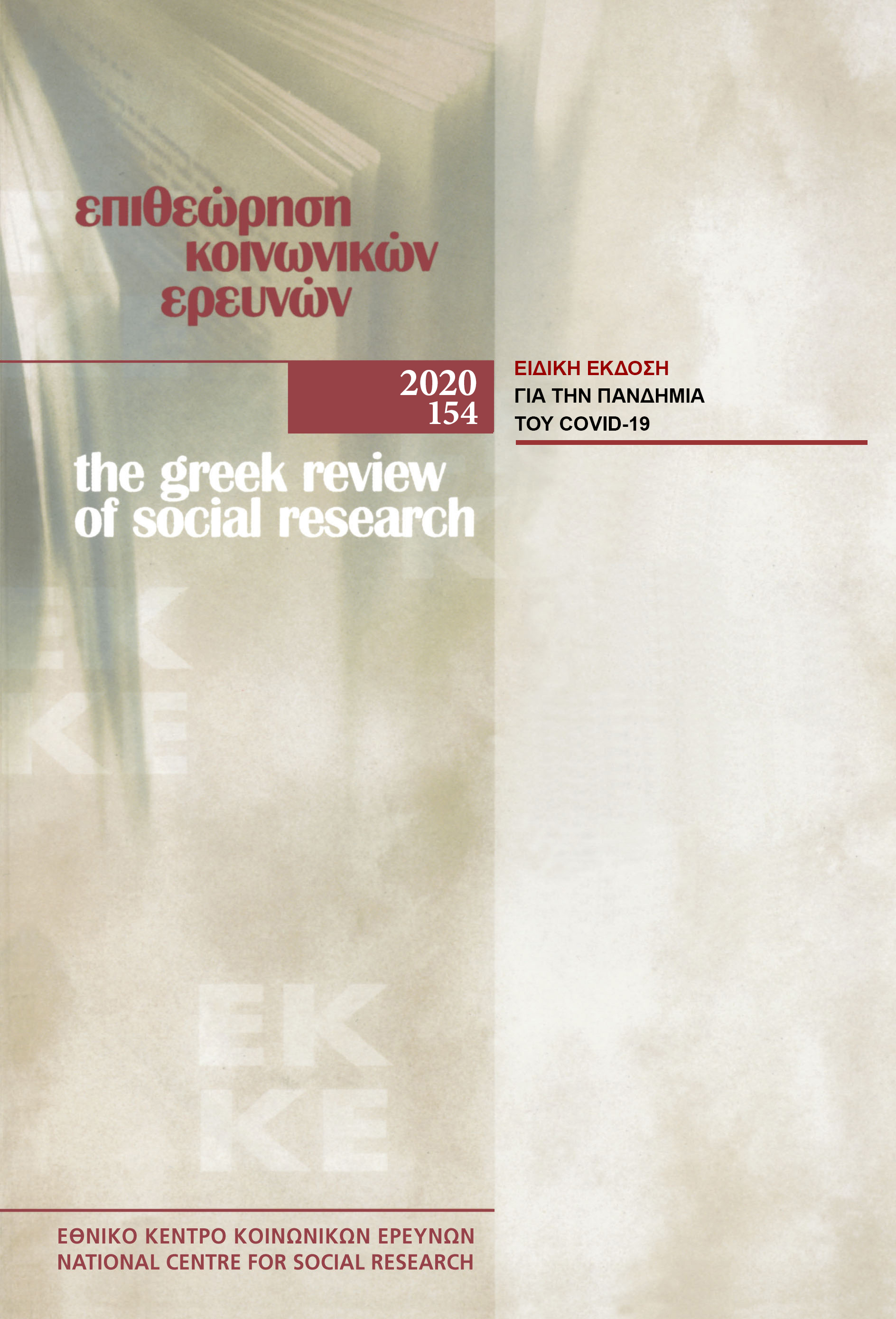Ποιοι πιστεύουν στις θεωρίες συνωμοσίας για τον νέο κορωνοϊό;

Περίληψη
Η παρούσα εργασία αποτελεί μια πρώτη προσέγγιση των αποτελεσμάτων μιας έρευνας σχετικά με την απήχηση που βρίσκουν οι θεωρίες συνωμοσίας στους χρήστες των μέσων κοινωνικής δικτύωσης στην Ελλάδα. Πρόκειται για μία διαδικτυακή έρευνα με δομημένο ερωτηματολόγιο, στην οποία οι συμμετέχοντες κλήθηκαν να λάβουν μέρος μέσω ανακοινώσεων και καταχωρήσεων σε μέσα κοινωνικής δικτύωσης. Τα δεδομένα σταθμίστηκαν βάσει μιας τηλεφωνικής έρευνας που πραγματοποιήθηκε σε αντιπροσωπευτικό δείγμα του πληθυσμού. Τα αποτελέσματα δείχνουν πως ο κατεξοχήν ερμηνευτικός παράγοντας των θεωριών συνωμοσίας για τον νέο κορωνοϊό είναι ο βαθμός αποδοχής θεωριών συνωμοσίας που αφορούν εντελώς διαφορετικά θέματα (π.χ. την κρίση της ελληνικής οικονομίας). Τα αποτελέσματα συγκλίνουν στο ότι οι πεποιθήσεις γύρω από τις θεωρίες συνωμοσίας οφείλονται σε βαθύτερα ψυχολογικά αίτια, με σαφείς συνέπειες ως προς τη χάραξη πολιτικών ενάντια στην παραπληροφόρηση.
Λεπτομέρειες άρθρου
- Πώς να δημιουργήσετε Αναφορές
-
Gemenis, K. (2020). Ποιοι πιστεύουν στις θεωρίες συνωμοσίας για τον νέο κορωνοϊό;. Επιθεώρηση Κοινωνικών Ερευνών, 154, 97–108. https://doi.org/10.12681/grsr.23523
- Ενότητα
- Άρθρα

Αυτή η εργασία είναι αδειοδοτημένη υπό το CC Αναφορά Δημιουργού – Μη Εμπορική Χρήση 4.0.
Οι συγγραφείς των άρθρων που δημοσιεύονται στην Επιθεώρηση Κοινωνικών Ερευνών διατηρούν τα δικαιώματα πνευματικής ιδιοκτησίας επί των άρθρων τους, δίνοντας στο περιοδικό το δικαίωμα της πρώτης δημοσίευσης. Άρθρα που δημοσιεύονται στην Επιθεώρηση Κοινωνικών Ερευνών διατίθενται με άδεια Creative Commons 4.0 και σύμφωνα με την άδεια μπορούν να χρησιμοποιούνται ελεύθερα, με αναφορά στο/στη συγγραφέα και στην πρώτη δημοσίευση για μη κερδοσκοπικούς σκοπούς.
Το Εθνικό Κέντρο Κοινωνικών Ερευνών διατηρεί το δικαίωμα να δημοσιεύει, να αναπαραγάγει, να παρουσιάζει στο κοινό, να διανέμει και χρησιμοποιεί άρθρα που δημοσιεύονται στην Επιθεώρηση Κοινωνικών Ερευνών σε οποιοδήποτε μέσο και μορφή είτε μεμονωμένα είτε ως μέρη συλλογικών έργων, για όλο τον χρόνο διάρκειας προστασίας της πνευματικής ιδιοκτησίας και για όλες τις χώρες του κόσμου. Αυτό περιλαμβάνει ενδεικτικά και όχι αποκλειστικά το δικαίωμα δημοσίευσης των άρθρων σε τεύχη της Επιθεώρησης Κοινωνικών Ερευνών, αναπαραγωγής και διανομής μεμονωμένων αντιγράφων των άρθρων, αναπαραγωγής ολόκληρων των άρθρων σε άλλη έκδοση του Εθνικού Κέντρου Κοινωνικών Ερευνών, καθώς και αναπαραγωγής και διανομής των άρθρων ή περίληψης αυτών με χρήση πληροφορικού συστήματος αποθετηρίου.


